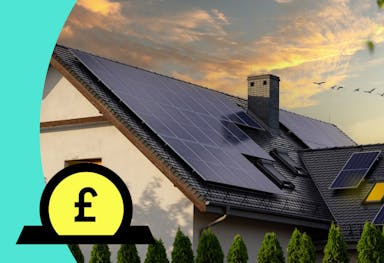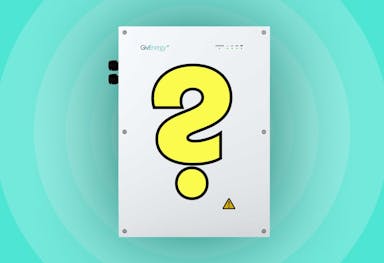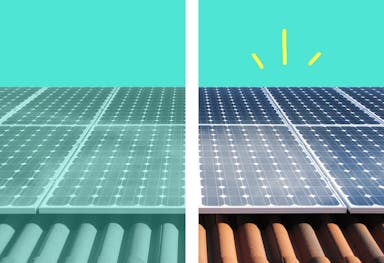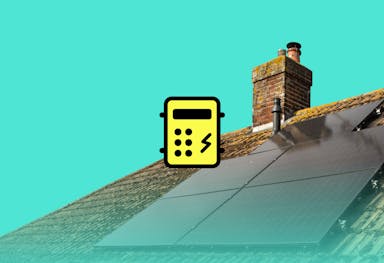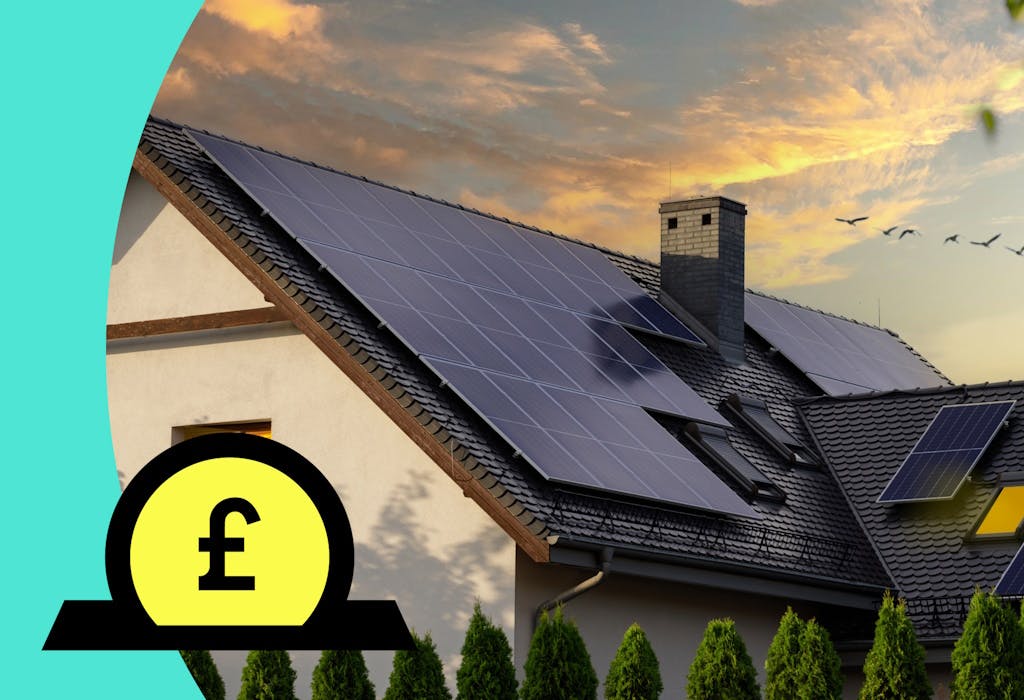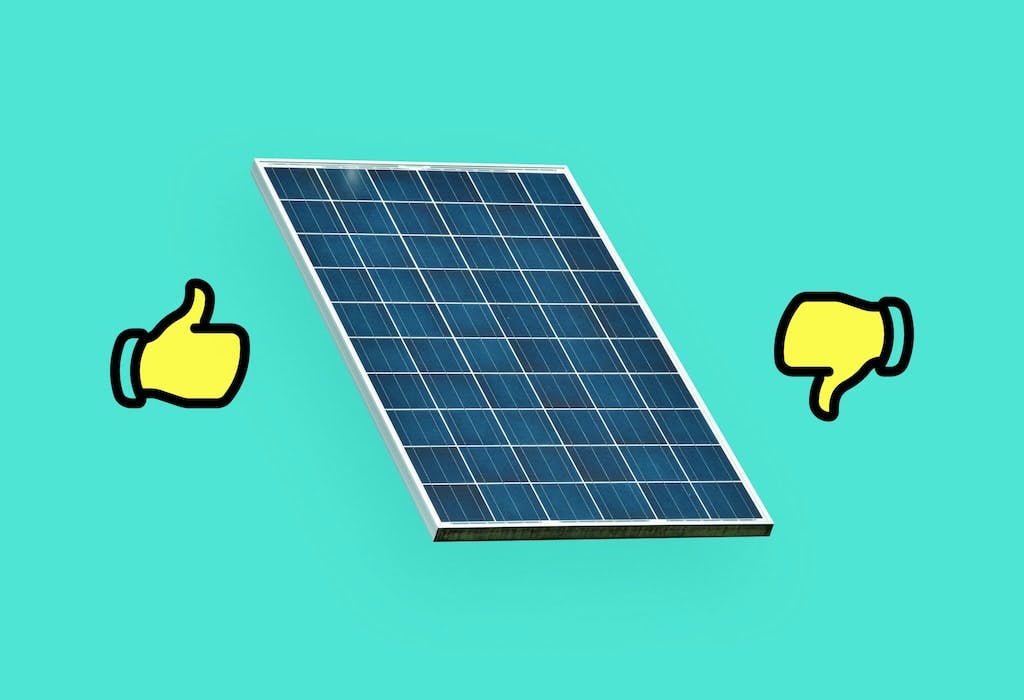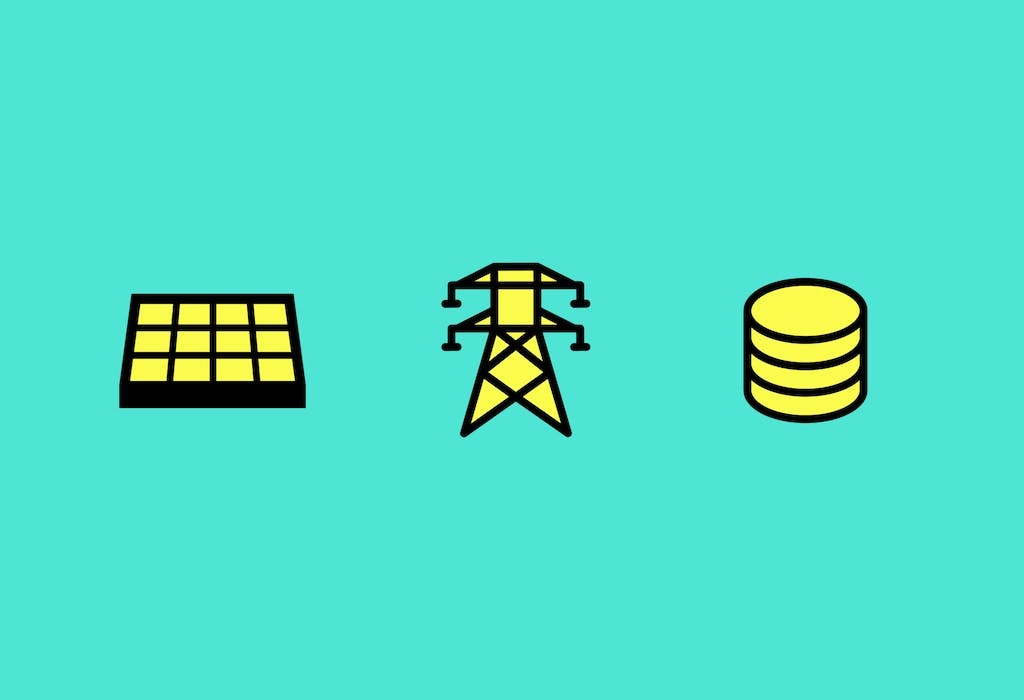- Solar advice hub
- Costs
- Do solar panels increase the value of your home?
Do solar panels increase the value of your home?
Learn about how solar panels affect property prices around the UK, and why they're so popular with homebuyers.


Why you can trust our content
We know that the solar industry is full of misinformation, but we only use reliable sources, including:
- Our experienced solar experts, installers and system designers
- Our own database of solar & battery system designs
- Authoritative bodies like MCS and the UK government




Calculate savings
What kind of home do you live in?
Calculate savings
What kind of home do you live in?
What you need to know
Solar panels can cut your electricity bills, your carbon footprint, and your reliance on the grid – but before you commit, you’ll want to know you’re making the best choice for your home.
This naturally includes checking whether solar panels have a positive impact on your property’s price.
In this article, we’ll run through the latest in-depth research on the subject, and explain how much you can therefore expect solar panels to add to your home’s value.
If you’re wondering how much a solar & battery system could save you, answer a few quick questions, and we’ll provide you with an estimate.
Find out how much you can save
What kind of home do you live in?
The impact of solar panels on UK property value
Solar panels can increase the value of a property in the UK, as multiple studies show.
However, the question of how much they'll increase it by is a little more up in the air. Some studies say around 2-3% on average, whilst another goes as high as 6-7%.
One of the main reasons solar has such an impact is because of Energy Performance Certificate (EPC) ratings; going solar will usually increase your property's EPC by at least one grade, and this usually affects your property's value.
Landlords are clearly aware of this pattern, seeing as their top reason for making green home improvements is to increase their property’s value, according to Coventry Building Society’s 2023 study.
And homeowners have spotted the trend too, with 67% believing that making their property more energy-efficient would increase its value.
Let's dive into the details.
Can solar panels directly increase the value of your home?
A couple of studies from the past few years have found that solar panels have a direct impact on property value in the UK. Given the many benefits of solar panels, including reduced electricity bills, export income, and a smaller carbon footprint, this makes a lot of sense.
And considering the prediction that energy bills will stay high until the late 2030s, the appeal of solar panels to homeowners is only likely to increase.
Here are the two studies.
Swansea University, 2024
In July 2024, researchers at Swansea University published a study which found that solar panels increase property value in the UK by between 6.1% and 7.1%, on average.
They used data from Zoopla to analyse around five million property listings from 2012 to 2018, looking for listings that mentioned 'solar panels' in their description. These listings were then matched with the UK Land Registry's Price Paid Data (PPD) to obtain the official transaction prices.
Solar Energy UK
Produced by the biggest solar trade association and Cambridge University, this study took the same approach of analysing five million property listings.
Its findings are a little more modest than those of Swansea University - but it's also three years older.
They found that solar panels increase home value by between 0.9% and 2%, on average.
With the average house price standing at £298,083 as of December 2024 , this suggests that switching to solar could increase the average home's value by anywhere from £2,682 to £5,962.
Or, if you take the more optimistic approach from Swansea University, this increase could be between £18,183 and £21,163.
Do solar panels increase your property’s EPC rating?
Solar panels usually increase a property’s EPC rating.
An EPC report is necessary if you’re selling, building, or renting out a property – and it’s a great way for owners to find out how to cut their energy bills.
Here’s the scoring system:
Every EPC report estimates how much energy you need per year, based on your property’s size and efficiency, plus the energy used to produce this fuel and supply it to you.
Solar panels allow you to generate a significant proportion of this energy yourself, massively cutting the amount you need to import from the grid – which uses fossil fuels to produce around one third of its electricity.
This will increase your home’s EPC score, as you’ll be replacing carbon-emitting grid electricity with green solar energy.
Your EPC report will also explain how much money you could save by making some eco-friendly home improvements.
Homes with a D grade or below typically spend hundreds of pounds more per year on energy than they would with a more energy-efficient home – which includes 64% of UK homes with an EPC rating, according to our analysis of the latest government data.
Solar panels increase a home’s EPC rating by around 18 points on average, according to our calculations, which are based on the government’s Standard Assessment Procedure (SAP) guidance.
EPC reports will usually tell you that a 2.5kWp solar panel system could increase your score by around 10 points, but the average domestic solar installation is now above 4.6kWp – hence the extra uplift.
As you can see below, solar can help the average property with an area of 100 square metres to raise its EPC rating from D to C – or even to B, with a few more panels.
To work out these figures, we’ve also used data from Nationwide and Rightmove.
As you can see, it’s nearly always better to get a larger solar panel system, since it’ll increase your home’s EPC rating and value, as well as boosting your export profits and protecting you against energy price rises.
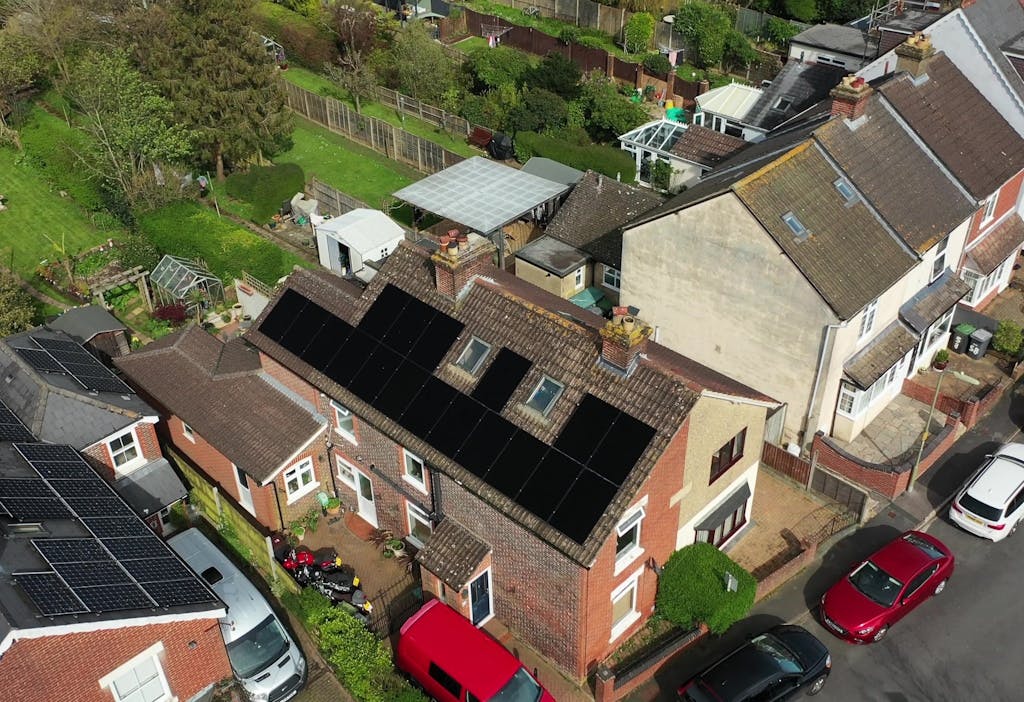
Does EPC rating affect property value?
Your EPC rating does affect your property’s value, according to multiple studies that we’ll explain in more detail below.
These studies all find that increasing your home’s value by raising its EPC rating is a good idea – and proven to work – though they disagree about how much you can gain.
This is understandable, since the sheer number of variables – including the property’s location, size, and condition, as well as the state of the housing market – make it near-impossible to get the same result each time.
The best studies will give you a good idea of what to expect though – so let’s run through them.
The Sustainable Homes & Buildings Coalition
Solar panels can increase the value of your home by as much as £10,000 just by moving it up one EPC grade, according to a 2021 study by The Sustainable Homes & Buildings Coalition, which is comprised of Natwest Group, Worcester Bosch, British Gas and Shelter.
And if a solar installation helps your property’s EPC go up by two grades, it could add up to £17,500 to your home’s value.
75% of properties in England and Wales have either a C or D rating. If your home is among them, a solar panel system could raise its value by 2% on average, adding more than £5,000 to its price tag.
And if your property has an EPC rating of G, going solar could typically raise its value by 3.8%, which is just shy of £10,000.
Rightmove
Your EPC rating has a direct impact on your home’s value, according to Rightmove’s 2023 study of 300,000 properties.
The survey shows that the price difference between homes with an F grade and a C grade is 15%, or more than £55,000 at current prices.
Your gains are smaller as you go up the EPC grade ladder, but a 3% increase for raising your home’s EPC rating from D to C is still worth more than £11,000.
And fortunately, solar panels can usually help you achieve this kind of jump.
A 4.5 kilowatt-peak (kWp) solar panel system – that is, an installation which produces 4,500 kilowatt-hours (kWh) per year under standard test conditions – will typically raise your EPC score by around 18 points, which is almost always enough to push you up a grade.
When coupled with the amount you’ll save on your electricity bills every year, this makes going solar a fantastic prospect.
And if you're not sure about the high upfront cost of solar panels, you can always consider Sunsave Plus. This is the UK's first solar subscription, and it means you can switch to solar with no upfront cost.
To sign up for Sunsave Plus, just answer a few quick questions below and we’ll get in touch.
Find out how much you can save
What kind of home do you live in?
What factors affect solar panels' impact on home value?
It's not simply a case of: solar panel system = X% home value increase.
There is so much variety when it comes to solar panel systems, and so naturally this affects how much they can impact property value.
Here are five key factors that can determine the (real or perceived) worth of a solar panel system to prospective home buyers.
1. The size of the system
All things being equal, larger systems generate more electricity than smaller systems - and more electricity from your panels means importing less from the grid. To learn more, check out our guide to why you should get a larger solar panel system.
2. Whether the system has a battery
You can only use solar-generated electricity in that instant that it's created, otherwise it gets sent to the grid automatically. But the average household's peak electricity usage is in the early evening, when solar panels have stopped generating electricity.
This mismatch can be solved by adding a battery, which helps you store up excess electricity during the daytime for use overnight. A battery also gives you access to some of the best solar export tariffs, and improves the benefits of Demand Flexibility Service (DFS) events.
3. The quality of the hardware
Two households could have identically sized solar panel systems, but if one system has significantly higher efficiency and durability, it's going to be producing a lot more electricity. A prospective homebuyer may not have the necessary expertise to assess the quality of the hardware, but the energy bill savings will do the talking.
4. The age of the system
Modern monocrystalline solar panels tend to last over 30 years, as they're tough bits of kit with no moving parts. Most systems comprising these high-tech panels are unlikely to be anything more than five or so years old, meaning they still have a long life ahead of them.
However, any system using blue, polycrystalline solar panels could easily be over 15 years old, and may only last another decade or so. A system with only a few years ahead of it won't be worth much to a prospective homebuyer.
5. The appearance of the system
A bit of an obvious one. If the panels on the roof look terrible then this may dissuade even the most green-minded, money-conscious buyer. Fortunately, the prospect of bad-looking solar panels in 2024 has pretty much turned to myth, given how sleek modern solar panels look.
You can check out the appearance of a few Sunsave solar & battery systems on our Customer Stories page.
Is there more demand for solar homes?
The demand for solar homes is increasing – and it’s already high.
This means that however much of an EPC rating boost you get from your new solar panels, they’ll make your property more appealing to homebuyers, allowing you to sell it for a higher price.
69% of people are either ‘likely’ or ‘very likely’ to buy or rent a property with solar panels, according to a 2023 Eco Experts survey of more than 2,000 UK homeowners.
Just 8% of people said they’d be ‘unlikely’ or ‘very unlikely’ to do so.
And 66% of people in the UK said they’d feel proud to have an environmentally friendly property, according to a 2021 survey by Halifax of more than 4,300 adults.
Electricity prices are set to keep rising in the coming years, with demand for electricity increasing as heat pumps and electric vehicles become increasingly mainstream.
It’s therefore extremely likely that the popularity of solar panels – which can generate free electricity for their owners – will continue to grow.
Why is demand increasing?
Solar homes are becoming increasingly popular for multiple reasons. They can cut your electricity bills, reduce your reliance on the grid, and shrink your carbon footprint.
Due to their ability to save you money – not least by selling excess electricity to the grid through a solar export tariff – and reduce emissions, solar installations are growing at record rates, and will soon be the norm across the UK.
This means homebuyers may soon be put off by a property that doesn’t come with solar panels – as they often are now when a home doesn’t have double glazing.
- Solar cuts your electricity bills. A solar & battery system can reduce a household’s electricity bills by 86%, on average*
- You’ll be less dependent on the grid. What’s more, certain storage batteries can keep your electricity running in the event of a power cut
- Buyers want a green home. With solar panels, you can cut your carbon footprint by 1.1 tonnes of CO2 per year on average – or 31%. This is based on a database of 32 different solar & battery systems designed by Sunsave, located across England and Wales. Each system uses 430W solar panels and a 5.8kWh battery.
- Solar panels protect you against energy crises. The price of energy can spike because of unforeseen geopolitical events – but with your own supply of solar electricity, sudden price hikes will have a limited effect on you
- They future-proof your property. Homebuyers may soon expect solar panels, meaning your home could be less attractive without them
*This might sound too good to be true, but it’s all because of the high performance of modern solar panels and storage batteries, as well as export income.
The panels will dramatically reduce the amount of electricity you buy from the grid, and you’ll also earn money by selling your unused electricity to the grid.
This figure is based on a sample of over 150 systems installed by Sunsave across England and Wales in 2024. The average system is 6.1kWp, with 54% of solar electricity used at home and 46% exported to the grid.
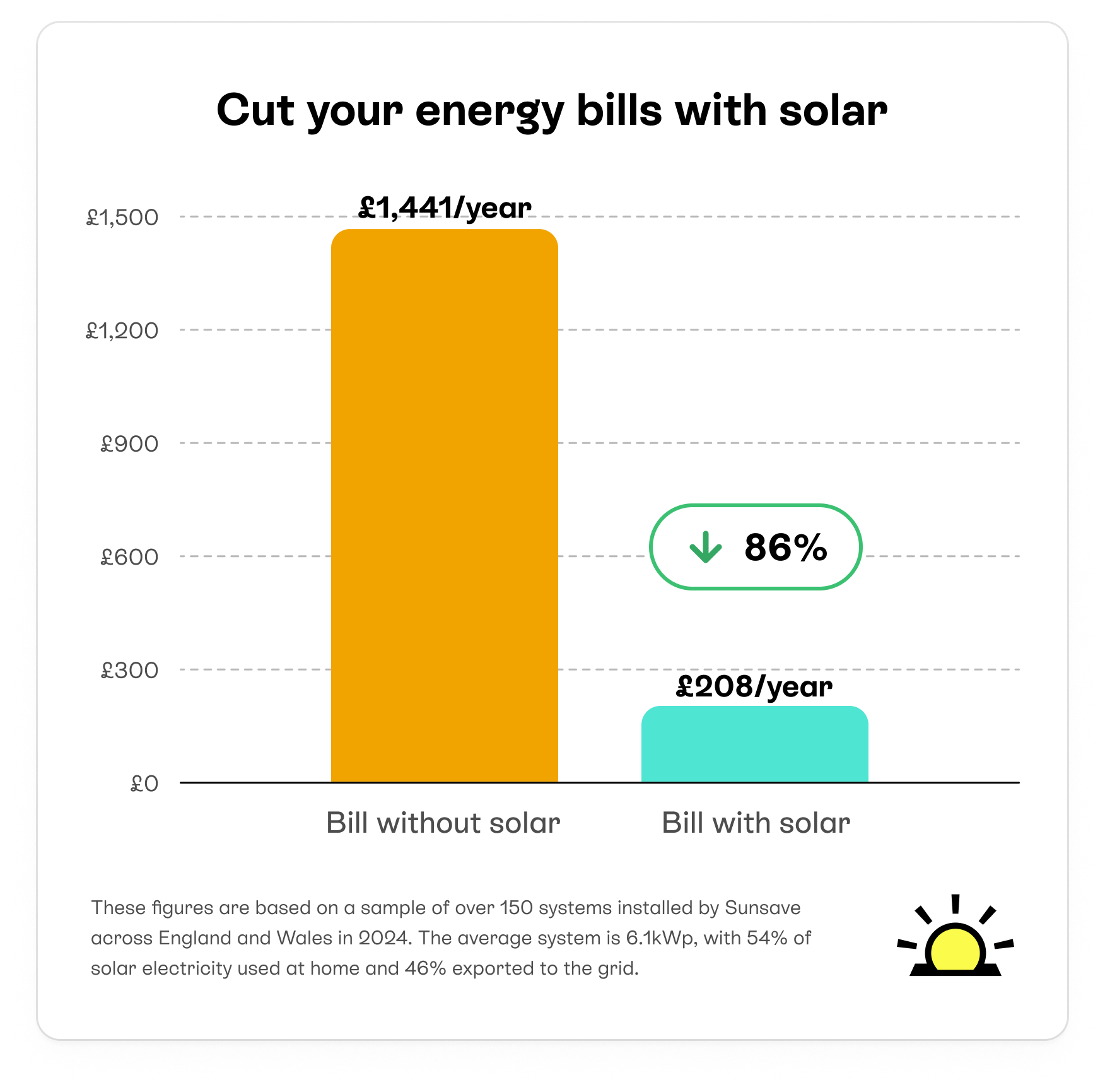
Solar panels and property value in the US
Academics and companies in the US have also put together research on whether solar panels increase the value of your home, though since the US has a different cultural and financial approach to solar panels, their studies should be taken with a large pinch of salt.
Zillow found there was an average 4.1% boost in the sale value of homes with solar panels, with owners in New York receiving the highest increase in the country, at 5.4%.
The 2019 study saw the real estate company look at the sales of homes with and without solar installations across the US, making sure they were comparing properties with a similar age, location, square footage, and number of bedrooms and bathrooms.
A Californian academic study published in 2012 showed solar panels increase the price of a home by 3.5%, on average – with an even bigger boost observed in liberal communities.
And a 2015 investigation led by a US Department of Energy researcher across six states concluded that solar panels significantly raise the price of a property, though it stated the specific amount depended in each case on the nature of the installation and market.
Next steps
The research is clear: solar panels can increase the value of your home, although the exact size of the increase is still up for debate.
Naturally, the impact of solar on property value will also depend on many variables, such as the size of the system, how old it is, and its location in the UK.
Going solar is also the best way to protect your household against future energy crises and a national grid that’s struggling to meet the country’s rising needs.
If you’re interested in how much you could save with a solar & battery system, enter a few quick details below and we’ll generate a quick estimate.
Find out how much you can save
What kind of home do you live in?
Solar panels and property value: FAQs
Related articles

Written byJosh Jackman
Josh has written about the rapid rise of home solar for the past six years. His data-driven work has been featured in United Nations and World Health Organisation documents, as well as publications including The Eco Experts, Financial Times, The Independent, The Telegraph, The Times, and The Sun. Josh has also been interviewed as a renewables expert on BBC One’s Rip-Off Britain, ITV1’s Tonight show, and BBC Radio 4 and 5.


